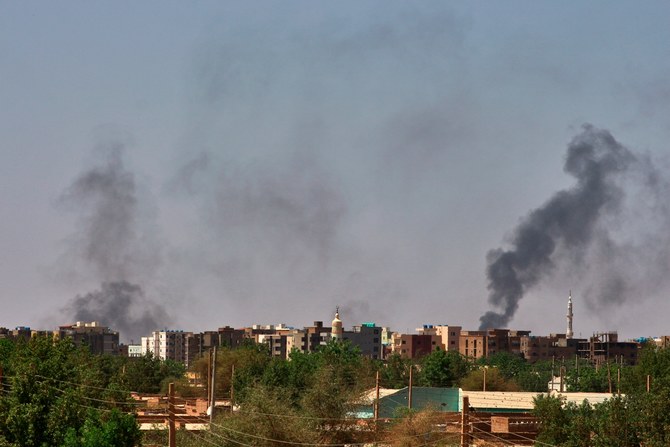
As November’s US presidential election approaches, concerns about interference by foreign states are rising. A statement issued by the director of US counterintelligence this month warned the American public that other countries are using “covert and overt influence measures” to sway the vote. The Islamic Republic of Iran was named as one of three countries, alongside Russia and China, that the National Counterintelligence and Security Center is primarily concerned about.
While Russia has long been in the spotlight over its interference in US elections, the Iranian regime has received less attention, probably because some policy analysts, politicians and experts do not believe that Tehran has the capability to influence the ballot. However, Iran’s power to interfere should not be underestimated. Governments that have high stakes invested in who becomes the next US president are more likely to take measures to influence the election — and it can be said that this year’s vote is the most consequential in the Iranian regime’s 40-plus-year history.
Prior to the Obama administration, previous US presidents primarily maintained similar policy toward the Islamic Republic. Some preferred negotiations, but they all gradually increased pressure and imposed more sanctions on Tehran. Now, President Donald Trump and the Democratic presidential candidate Joe Biden appear to be at opposite ends of the spectrum when it comes to Iran policy.
The Trump administration is in favor of maximizing its pressure on Tehran, reducing its oil exports, isolating it in the region and globally, and scuttling the current nuclear deal, the Joint Comprehensive Plan of Action, which was reached under the Obama administration.
But Biden wants to revive the 2015 nuclear deal, which would mean the lifting of all sanctions that the Trump administration has so far imposed on the ruling clerics, Iran being allowed to rejoin the global financial system, and it being brought out of isolation. From the perspective of the Iranian leaders, the regime cannot afford another four years of Trump and his “maximum pressure” policy. Its hold on power will be gravely endangered if Trump is re-elected, as the regime is currently facing unprecedented levels of financial and political pressure. As a result, the Iranian regime will do everything in its power to make sure Biden is elected as president on Nov. 3.
The regime cannot afford another four years of Trump and his ‘maximum pressure’ policy
Dr. Majid Rafizadeh
But how will Iran attempt to influence the election? Iran’s interference in American democracy dates back to 1980. Tehran reportedly agreed to release the US hostages it held at the end of Jimmy Carter’s first term, but they ultimately delayed the release, most likely to deny Carter a political victory ahead of the election and to project its power to the US. The ruling clerics were apparently furious that Carter had allowed the deposed Shah Mohammed Reza Pahlavi into the US, while they also reportedly had a deal with Reagan that the US would sell them arms if he became president.
Now, in this age of technology, the Iranian regime has access to other resources to influence US presidential elections, both covertly and overtly. Tehran uses sophisticated and skilled hackers to help the regime. According to a statement released in January by tech giant Microsoft, hackers linked to the Iranian government had already started targeting the 2020 election through thousands of hacking attempts. It was reported that the hackers specifically targeted the Trump re-election campaign. Microsoft said: “Today we’re sharing that we’ve recently seen significant cyber activity by a threat group we call Phosphorus, which we believe originates from Iran and is linked to the Iranian government... The targeted accounts are associated with a US presidential campaign, current and former US government officials, journalists covering global politics and prominent Iranians living outside Iran.”
The Iranian regime also uses its skills in spreading misinformation, dividing the American public, and weakening the public’s confidence in the democratic character of the elections. Some of the major disinformation campaigns the regime carries out are implemented on social media platforms such as Facebook and Twitter. Facebook in 2018 removed “652 pages, groups and accounts for coordinated inauthentic behavior that originated in Iran and targeted people across multiple internet services.” The likes of Twitter and Google owner Alphabet have also identified many “inauthentic” accounts that originate in Iran. These fake accounts and profiles have now been removed, but others can be created.
By spreading false information, the regime attempts to advance specific narratives against the Trump administration, which would ultimately benefit Tehran and strengthen the ruling mullahs’ hold on power. For example, one of the narratives includes maintaining the Iran nuclear deal.
The Iranian regime’s efforts to spread disinformation and fake news, sow discord and undermine confidence in November’s US presidential election must be thwarted.
Dr. Majid Rafizadeh is a Harvard-educated Iranian-American political scientist. Twitter: @Dr_Rafizadeh
Disclaimer: Views expressed by writers in this section are their own and do not necessarily reflect Arab News" point-of-view












